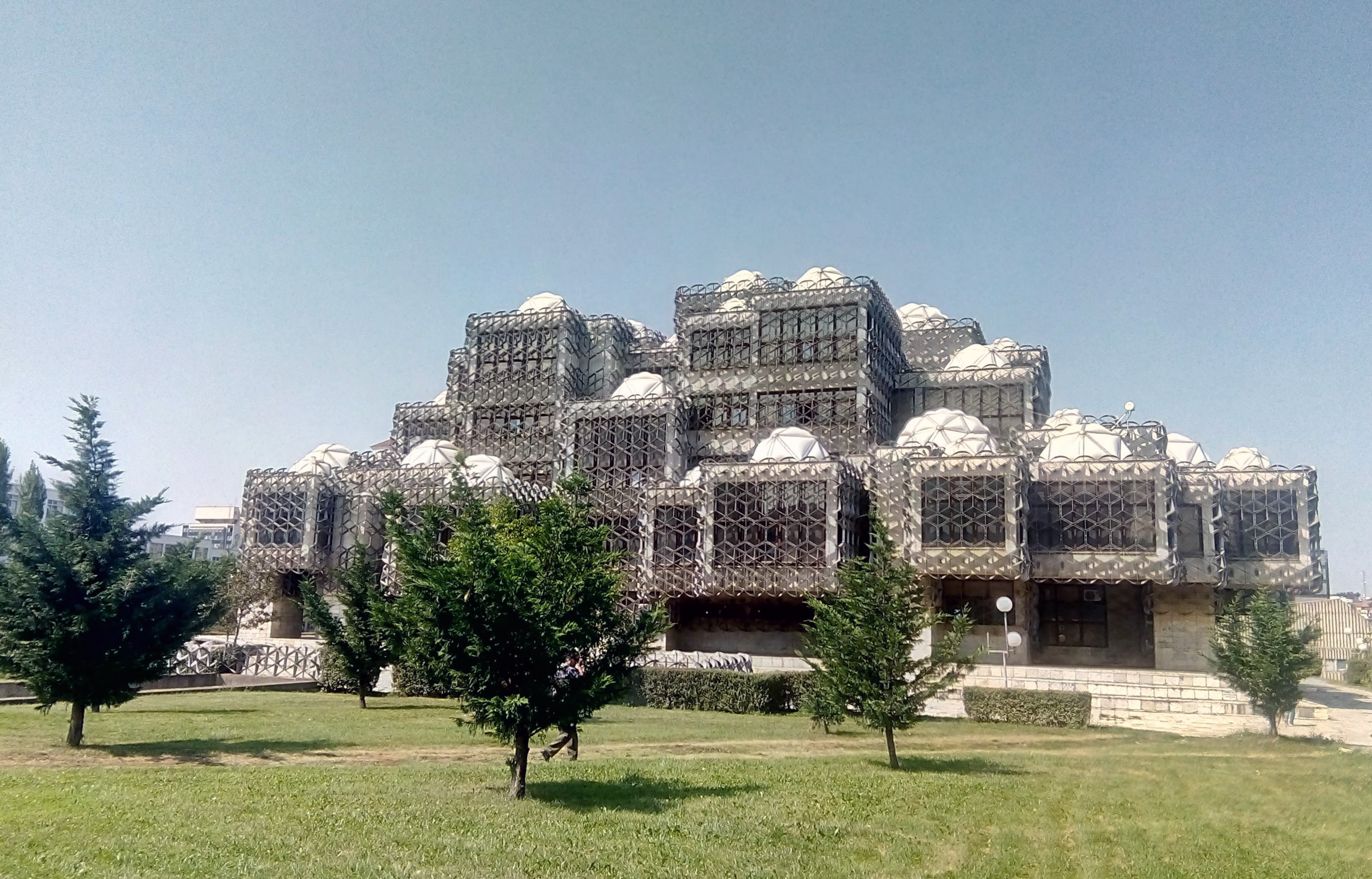Political situation Progress needed in respect of rule of law
National library in Pristina, Kosovo
The legal conditions for a successful process of democratisation are, thus, in place, but implementation is still lagging.
Some areas of the public administration are not yet fully functional; numerous legal grey areas and unlegislated areas still remain. Corruption is widespread and parts of the political and administrative system have close links with organised crime. Ethnic minorities, women, people with disabilities and LGBTQI+ persons continue to be discriminated in public life.
The domestic political situation has been unstable for several years now and there have been frequent changes of government. At the last parliamentary elections, which were held early in February 2021, the opposition party Vetëvendosje achieved an indisputable election victory. The new government reflects a new generation and a break with the old political establishment, which was made up largely of leading figures from the Kosovar liberation front, UCK. It is not yet clear whether the new government will succeed in leaving behind the political culture of client politics and instead set in motion true reform processes with regard to the rule of law and governance. However, there appears to be the will to make an earnest endeavour.
Moving closer to the EU
The EU has repeatedly assured Kosovo of its prospects of accession, just as it has the other countries in the western Balkans. The precondition for this, however, is that significant progress first be made in regard to the rule of law, strengthening administrative structures and establishing a well-functioning market economy. So far (as at February 2022), Kosovo has not filed an application for accession.
A Stabilisation and Association Agreement between the EU and Kosovo entered into force in April 2016. By signing the agreement, Kosovo undertook to introduce EU standards of good governance – for instance by improving the independence of the country's judiciary and its media, fighting corruption and organised crime, and reforming the labour market.
As at: 11/03/2022
